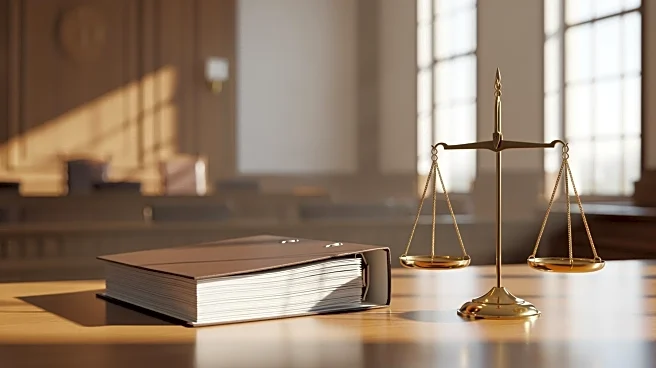What is the story about?
What's Happening?
The Federal Circuit has affirmed a decision by the Patent Trial and Appeal Board (PTAB) in a rare derivation proceeding under the America Invents Act (AIA). The case involved a dispute between inventors Selner and Burnam over the inventorship of a patent application for a biocidal ointment. The PTAB found that Selner independently conceived the invention before Burnam communicated his conception, thus ruling in favor of Selner. The Federal Circuit's decision underscores the complexity and evidence-heavy nature of proving misappropriation in such cases. The ruling emphasizes the importance of thorough documentation and filing patent applications before engaging in discussions with third parties.
Why It's Important?
This decision is significant for inventors and companies involved in collaborative projects, as it highlights the risks associated with joint development activities without proper agreements. The ruling stresses the necessity of maintaining detailed records to corroborate independent invention claims. The case serves as a cautionary tale for those engaging in inventive collaborations, suggesting that without proper documentation, proving independent conception can be challenging. The decision reinforces the AIA's shift from a first-to-invent to a first-to-file system, emphasizing the need for inventors to secure their intellectual property rights promptly.
What's Next?
Following this decision, inventors and companies may need to reassess their strategies for protecting intellectual property during collaborative projects. The ruling suggests that implementing joint development agreements (JDAs) could mitigate risks by clearly defining ownership of inventions. Additionally, inventors might prioritize filing patent applications before any third-party discussions to avoid potential derivation proceedings. The case may prompt further legal scrutiny and adjustments in how inventors approach patent filings and collaborations.
Beyond the Headlines
The case highlights broader implications for the innovation ecosystem, particularly the balance between collaboration and protection of intellectual property. It raises ethical considerations about the transparency and fairness of inventorship claims. The decision may influence future legislative or policy discussions on patent law, especially concerning the protection of inventors' rights in collaborative environments.















